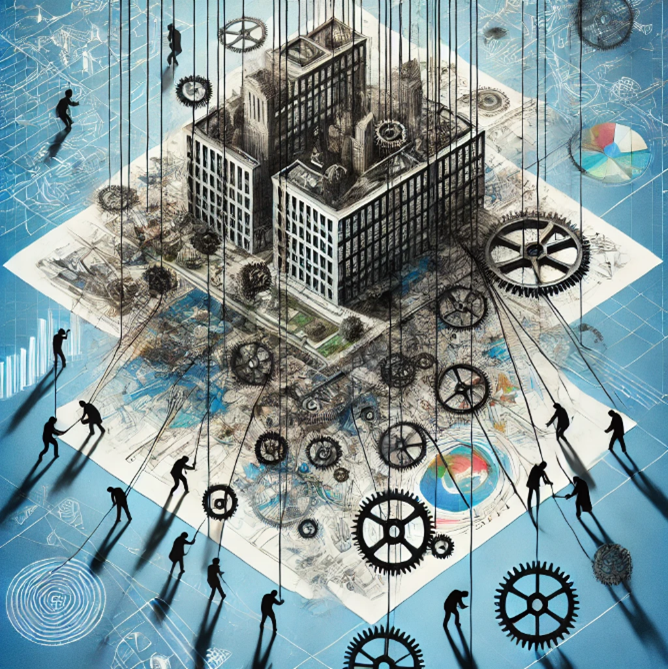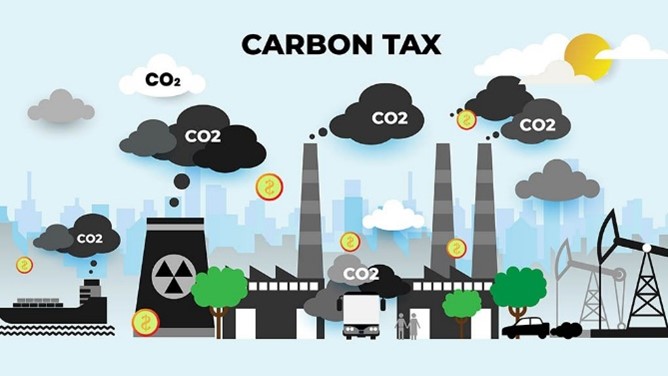How do political instability and corruption affect the economic potential of emerging markets?

How do political instability and corruption affect the economic potential of emerging markets?
by Nathaniel 11:02am Jan 11, 2025

How do political instability and corruption affect the economic potential of emerging markets?
Political instability and corruption are two major factors that can significantly undermine the economic potential of emerging markets. These issues can disrupt economic development, discourage investment, and create an environment that stifles growth and prosperity. Below is a detailed explanation of how political instability and corruption affect the economic potential of emerging markets:
1. Undermining Investor Confidence
Uncertainty and Risk: Political instability—characterized by frequent changes in government, social unrest, civil conflict, or unpredictable policy shifts—creates an environment of uncertainty. Investors seek stability, and when they perceive a high risk of political upheaval, they are less likely to invest in a country. Foreign Direct Investment (FDI) and domestic investments may decline, hindering economic growth.
Capital Flight: Investors and capital owners in politically unstable or corrupt environments may choose to move their assets abroad to avoid potential losses, which can lead to capital flight. This reduces the amount of investment in productive sectors and slows down economic growth.
2. Distortion of Policy and Economic Planning
Unpredictable Economic Policies: Political instability often leads to erratic policy-making, where governments change frequently or implement inconsistent policies. In such a volatile environment, businesses are less able to plan for the long term, which harms investments in infrastructure, human capital, and technological innovation. This unpredictability prevents economies from executing effective long-term economic strategies and hinders progress.
Populist Policies: In some cases, political instability leads to the rise of populist leaders who may prioritize short-term gains over long-term stability. Policies like excessive public spending, subsidies, and protectionism can result in fiscal imbalances and unsustainable debt, which hurt the economy’s potential for growth.
3. Decreased Access to Financing
Higher Borrowing Costs: Political instability can result in higher risk premiums on loans from both domestic and international lenders. This leads to higher borrowing costs for the government and businesses, which in turn limits access to capital for development projects, infrastructure building, or business expansion. As borrowing becomes more expensive, economic growth becomes constrained.
Reduced Credit Ratings: In extreme cases, political instability or governance failures can lead to a downgrade in the country’s credit ratings. This increases the cost of borrowing further and limits access to international markets for debt financing, thereby hurting the country’s economic potential.
4. Corruption and Inefficient Use of Resources
Misallocation of Resources: Corruption often results in the misallocation of public resources. Government contracts, public services, and even the distribution of foreign aid can be diverted to private interests rather than being used for productive investments. This leads to inefficient public spending, where funds that could have been used for infrastructure, healthcare, education, or poverty reduction are wasted or siphoned off.
Infrastructure Bottlenecks: In environments where corruption is widespread, infrastructure projects—which are critical for economic development—are often delayed or poorly executed. Kickbacks, bribes, and political patronage can lead to substandard projects, higher costs, and a lack of long-term maintenance, which stunts economic growth and diminishes the country’s global competitiveness.
5. Weak Institutions and Governance
Erosion of Rule of Law: Corruption undermines the rule of law by allowing individuals to bypass legal frameworks, making it difficult to enforce contracts, protect property rights, or prosecute criminal activities. The lack of a strong legal system increases business risks and deters both domestic and foreign investments.
Low Quality of Public Services: Corruption also weakens the delivery of essential public services like healthcare, education, and security. The inefficient and inequitable distribution of public services, driven by corruption, reduces the country’s human capital potential and lowers overall productivity. Poor education and healthcare systems limit the workforce’s skill development, hampering the country’s capacity for innovation and growth.
Unreliable Regulation and Oversight: Weak institutions and corruption often lead to the lack of effective regulation, particularly in industries like banking, natural resources, and real estate. This can result in regulatory capture, where businesses or interest groups control or influence the rules to their advantage, rather than for the public good. Without strong regulatory oversight, markets become inefficient and fail to function optimally.
6. Social Unrest and Inequality
Increased Inequality: Corruption exacerbates income inequality by diverting resources away from social programs and essential services that benefit the broader population. Public funds intended for poverty alleviation or infrastructure development are siphoned off, creating wider disparities between the rich and poor. Rising inequality, in turn, can lead to social unrest and undermine the social fabric, destabilizing the economy further.
Social Unrest and Protests: Political instability and corruption can lead to increased social unrest, protests, and strikes. Protests and violence disrupt economic activities, decrease investor confidence, and can damage critical infrastructure. Long-term social unrest also impedes government efforts to implement needed reforms, further delaying economic development.
7. Reduced Trade and Economic Integration
Loss of Trade Partners: Political instability and corruption can strain a country’s relationships with international partners, potentially resulting in trade restrictions, sanctions, or reduced foreign assistance. Uncertainty in trade agreements or concerns about corruption in trade practices can cause other countries or multinational companies to seek more stable markets for their products, reducing trade and investment flows to the emerging economy.
Inability to Compete Globally: A lack of institutional trust, inefficient legal frameworks, and corruption can diminish a country’s competitiveness in the global marketplace. Without the rule of law, intellectual property protection, or consistent regulatory standards, businesses are discouraged from investing in such markets, and the country struggles to attract multinational companies or participate in global value chains.
8. Diminished Capacity for Development
Underdeveloped Human Capital: Corruption and political instability often result in poor governance in the education and healthcare sectors, leading to low-quality services. This diminishes a country’s human capital by reducing access to education and health services, ultimately undermining labor productivity. An undereducated and unhealthy workforce limits the country’s ability to diversify its economy and attract higher-value industries.
Stunted Innovation: In environments marked by corruption and political instability, innovation and entrepreneurship are often stifled. Corruption can lead to an unfair playing field, where businesses that engage in corrupt practices or have political connections are favored over more innovative or efficient competitors. Additionally, political instability can lead to an environment where long-term investments in research and development are discouraged, limiting the potential for economic diversification and technological advancement.
9. Long-Term Development and Growth Challenges
Sustaining Economic Growth: While political instability and corruption may not immediately hinder growth, they create long-term challenges that prevent sustainable development. Countries with weak institutions and inefficient governance systems are more likely to experience stagnation after initial growth spurts. The lack of proper investment in human capital, infrastructure, and legal systems means that the economy eventually hits a growth ceiling.
Difficulty in Reforming the Economy: Political instability and corruption make it harder to implement necessary economic reforms. Even when governments attempt to address underlying issues like poverty, unemployment, or low productivity, the lack of political will, the interference of corrupt elites, and social instability can derail these efforts. This makes it harder for emerging markets to transition from dependency on low-value sectors to more diverse, high-value industries.






